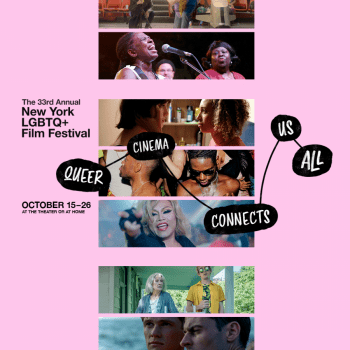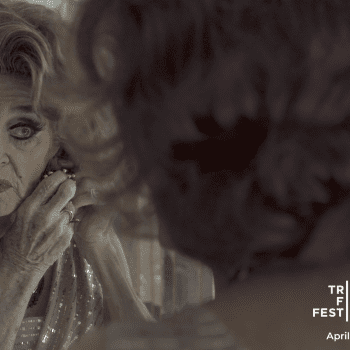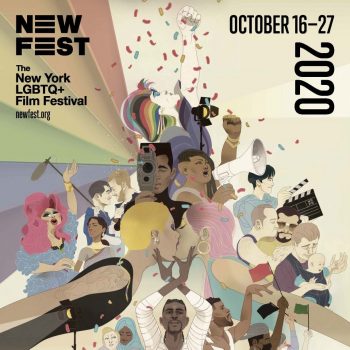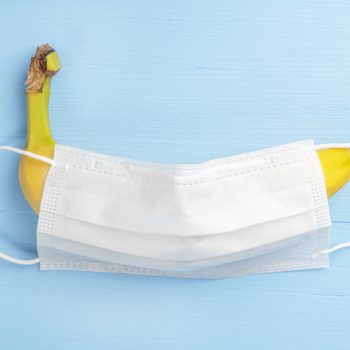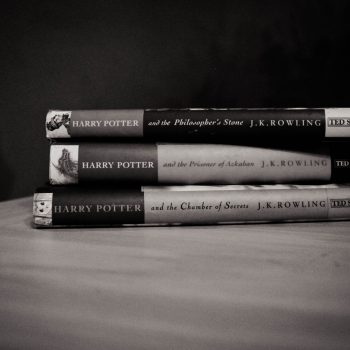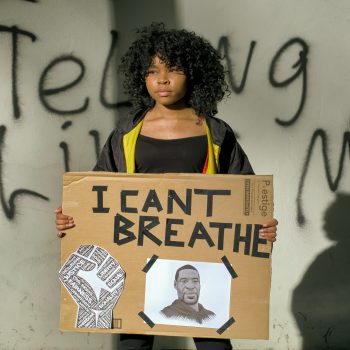What Dave Chappelle Got Wrong
A Conversation with a Stand-up Comedy Critic and Professor of Rhetoric and Communication

The audience at stand-up comedy performances do their best to avoid the hot seats, for fear of being an easy target. Acclaimed comedian, Dave Chappelle, who some say is the GOAT (greatest of all time), plopped himself front and center in the sticky wicket in the wake of his own Netflix comedy special, “The Closer.” Owing to what many describe as anti-trans jokes in the third installment of his multi-million dollar Netflix deal, some have called for him to be “canceled.” Many more, including trans employees and trans-empathizers at Netflix are petitioning the removal of the special altogether. It appears, Chappelle, has got himself into more than hot water, he might have simply gone too far this time.
If you have seen the new special, he warned us that he was “going to take it there.” But did he? His act instead drew upon similar themes from his last special “Sticks and Stones” and other performances where he makes fun of the trans experience with no meaningful contribution to the cultural discourse. Laws banning trans folks from accessing bathrooms were news fodder in the press for a hot minute, and it seems the loo is also where much of Chappelle’s jokes lodged themselves. One of the foulest relegated trans-female genitalia to not being quite like “the real deal,” as is the plant-based food brand Beyond Meat to a ground beef burger patty. He has not hidden his belief that he considers the experience of transness as inherently hilarious, even if he also says in this most recent special that he empathizes with their suffering. His overarching arguments suggest that he thinks the trans community lacks a funny bone or a compassionate one, at the very least.
If not an expression of trans-animus, clearly, he sees their existence as a joke. Declaring himself a trans-exclusionary feminist (TERF) in the latest special, a term used to describe those who think that the acceptance of trans women leads to the erasure of cisgender women and cisgender female-only spaces, perhaps made this perception less ambiguous. What is unambiguous is that his calculus to write and perform a show that included material that berates a group of people so oppressed by society that their very existence is tenuous either at their own hands or by others’ was worth a few laughs. As a tool originally used to check the powerful, it’s unclear if Chappelle, via his comedy, is suggesting that this group that is quite literally a dying species needed their comeuppance because their influence had grown far too great.
Although he displayed mastery in crafting and delivering a hallmark routine to address the disparity in the level of support against Black and LGBTQ bigotry, his remarks about the trans community, in particular, were both churlish and amateurish. It also denied the intersectionality of those who straddle both communities. Never able to say L-G-B-T-Q correctly or perhaps deliberately (he said LBGTQ painstakingly), and subversively calling himself “transphobic,” his motivations with this line of anti-trans jokes came across as mawkish and mean-spirited. To set the record straight about an incident shopped around to the gossip site TMZ, he publicly admitted to beating a masculine-presenting lesbian who he said swung at him first because he could not tell she was a woman. He decried that he doesn’t like “today’s gays” in favor of the “Stonewall gays,” those of yore who were made of tougher stuff, not recognizing the fight for LGBTQ equality at Stonewall was started and led by trans women of color, not gay men. That he mentioned support after his last special from one trans comedian who he coached and mentored and who ultimately killed herself after she had defended him publicly, didn’t ingratiate himself with the trans community, as perhaps he might have hoped. Instead, it felt like the sentiment of a would-be anti-racist who says “But I have a Black friend” to dispel their own bigotry.
In the ensuing week since the newest special’s release, there has been raging debate on television and online about the appropriateness of jokes whose aim serves little purpose other than to mock a disenfranchised and vulnerable group for a few cheap laughs, even if Chappelle was handed a hefty multi-million dollar payout. Comedians and non-comedians alike have added to the cacophony in the Twitterverse about the outrage, threats to free speech and how an ever-growing sensitive population of “snowflakes” and ninnies are taking the fun out of comedy because of “political correctness.” They say that “cancel-culture” instincts are a joke killer. Chappelle says, at least for now, he will stifle himself from sharing further LGBTQ jokes.
We consulted Lee Pierce, an expert in rhetoric to discuss not only the controversy, but the role of comedy and the evolution of the medium in a culture that may no longer think that identity jokes are a laughing matter. Pierce is an assistant professor of rhetoric and communication at State University of New York’s Geneseo campus, whose areas of study include race, comedy, and U.S. political and popular culture. Pierce, who is intersex and identifies as non-binary, is also an amateur stand-up comic and comedy critic. Their expertise has been sought by several media outlets, including Newsmax and ABC News 7 and they have led a couple of TEDx talks, analyzing the rhetoric, cultural and political significance of music videos by Beyoncé and Taylor Swift. Pierce has a podcast, RhetoricLee Speaking, a forthcoming book, “Tense Times: Syntax and Surprise in U.S. Crisis Culture,” and is currently penning a second book, “Black Rhetoric Matters: Reading a Politics of Disruption” set to be published in 2022.
Freshfruit: What is the function of comedy in society?
Pierce: If you think about a long historical view, you have the cynics of ancient Greece, you have court jesters in the Middle Ages, you have all the way up to Lenny Bruce of the 1950s-1960s, and they all share one common theme: they look at society, primarily power structures—systems of power, institutions of power. Their job is to point out where they are being hypocritical or absurd and then spread that message to not only hold old systems of power accountable, like the way that journalists do, but to help the public recognize our own function as perpetuating some of these systems.
Freshfruit: There has always been shock comedy, and comedians who have skirted the line between being edgy and offensive. What has changed in recent years?
Pierce: There weren’t marginalized people in the mainstream for ages. So, back when people were being “offensive,” they were being offensive against systems of power. So, if we look at Lenny Bruce in the 1950s, [he] would go on stage and say, “fuck” and he would talk about having sex and he would talk about oral sex, stuff that back then you would get arrested for. And he would repeatedly get arrested. I don’t consider that offensive. I consider that pointing out the oppressiveness and absurdity of social norms and rules and law. In that sense, it’s offensive to the law. What’s happened is that people have started to become offensive toward identities, but that hasn’t been the function of comedy until basically the last 20 or 30 years. Prior to the 1980s, other than Andrew Dice Clay, you just didn’t see comics going after identities. You look at [Richard] Pryor, you look at some of the early women comics like Gilda Radner, Margaret Cho in the 90s, they just didn’t go after identity because it’s low hanging fruit.
Freshfruit: How do comedians navigate this fine line and be successful at doing so? Are you saying that there is no place and space for that type of comedy?
Pierce: No, I just don’t think it’s comedy. I think it’s punditry. Is there a place or space for it? It’s in demand; people want it. So, I can’t argue with that. It certainly doesn’t advance society or help us think differently about issues. I wouldn’t call it comedy. People kind of misunderstand comedy. If you say something that you think is true and you just say it in a really hyperbolic, exaggerated manner, that’s not comedy because you’re just saying what you said in a really hyperbolic way. There’s a really famous example of a person on Twitter, Justine Sacco, a couple of years ago and she’s flying to Africa. And so, she writes on Twitter, ‘Headed to Africa. Hope I don’t get AIDS. Just kidding. I’m white!’ Then shuts off her phone. And in the meantime, Twitter explodes, her company that just hired her fires her and everyone says, this is oppression of comedy. But that’s not comedy because the joke is just true. White Europeans and Americans do have the sense that Africa is this AIDS-riddled country (sic), and that white people are immune from the AIDS epidemic. She just said it carelessly and with a lot of hyperbole, but that’s not comedy. That’s what I call punditry or shock commentary. If it serves a function to critique society and push us forward, it’s comedy, and, if it’s not, it’s just media fodder, and that’s fine, but I don’t think that those two things should be confused.
Freshfruit: Do comedians have an obligation to respect changing societal attitudes?
Pierce: I think comedian’s fundamental obligation is to notice systems and norms of power that they think are oppressive and mock them to help society become aware that they’re in function. And Chappelle is a great example. What did Chappelle do so well on the Chappelle Show? —race. He was transformative in the way that America, especially well-meaning white liberals, thought about their own implications and anti-Black racism. That’s what made him so good. And in fact, part of the reason he left the Chappelle’s Show is that he couldn’t handle the fact that the show was becoming an escape for white people to kind of think that they were doing the work of anti-racism when in fact they were kind of just perpetuating stereotypes.
It wasn’t that he was offensive to identities. He wasn’t offensive to Rick James. He was just really good at showing America—“Hey, your thoughts on race aren’t as progressive as you think they are.” And he did this again in “Sticks and Stones” with the standards and practices joke when he points out that these rules of respect that are enforced by the standards and practices department on television—you can’t say the N-word, you can’t say the F-word, unless you’re this identity or you’re gay or whatever. They’re not about respect. They’re about the fact that America wants to disavow the fact that we still think that Black people are N-words, and this is Chappelle’s argument—the only reason we won’t let you use the word is not because we respect Black people, it’s because we just don’t want to think about the fact that ongoing anti-Black racism is a very fundamental part of the fabric of society. The problem is that he didn’t take that over to do the same work with trans identities, but he can do the work. If he wants to continue to be one of the great comics of our era, he’s got to do the work on the system and not on people or identities he just doesn’t like.
Freshfruit: Is canceling a comedian an assault on free speech?
Pierce: There’s a documentary that got put out a couple of years ago called “Can We Take a Joke?” and it’s Gilbert Godfrey and Adam Corolla and a bunch of relatively well-known shock jocks. They talk a lot about free speech and the impression of free speech under “cancel culture” and political correctness. What I don’t think they understand is that free speech is a right guaranteed to humans in the United States, theoretically, that the state shall make no law to infringe on your right to speak criticisms against the state. That’s the fundamental principle. If I go on Instagram and write in your comments that you’re being really shitty and reinforcing this idea that “trans people are mentally ill”, that’s not any kind of infringement on free speech, because I have no authority to shut you down at all. Now, if the state goes and shuts off your Instagram account, then we’re talking. But you’ve got to remember, Instagram isn’t even owned by the state; it’s owned by Facebook. And so even then we’re not in free speech territory. So, free speech is a red herring argument, because it doesn’t apply. People just say it because it gets people scared.
Freshfruit: Is being canceled the right punitive action to use when comedians break this unstated social contract?
Pierce: I think so because there is no hate speech clause in the constitution. And if there were, I don’t think Chappelle would qualify; I think you want to take that term “hate speech” really seriously. You don’t want the government coming in and shutting down things that they don’t like, and you don’t want corporations like Facebook or Netflix, deciding what the American people should and should not hear. If you listen to even the most radical libertarian, democratic, pro-corporate organizations, they will say the solution to speech that you do not like is counter speech. What is cancel culture except counter speech?
Freshfruit: Is it that we’ve become too sensitive and politically correct, or has this dynamic always existed, but has never been as galvanized because of the advent of social media and the proliferation of mass media?
Pierce: We’re actually less sensitive now than we ever have been. Think of the great lengths that society went to over the last 200 years to keep anybody they didn’t like out of power. They went to extraordinary lengths to silence women, to oppress LGBTQ people, to slaughter and basically commit genocide, and lock up Black people. White cis men have been sensitive for centuries. So, in that sense, I think we’re actually less sensitive now. I think the issue is that our public education system is shot. So, people are not educated around the way that speech works, or how to express good ideas. Chappelle can say anything he wants because the state isn’t going to shut him down. If this were a hundred years ago and Chappelle spoke out against the state, he’d be in prison.
Freshfruit: Is there any truth to the concern from comedians that political correctness is killing comedy? There are fewer comedians who have been in hot water recently because of their stage act like Kathy Griffin or Michael Richards vs their off-stage antics such as Roseanne Barr, Louis CK, Kevin Hart, Chris D’Elia, Chris Hardwick etc.
Pierce: If political correctness is killing comedy, then why does Dave Chappelle have a 2021 number one Netflix special? And also, doesn’t he want outrage? If you’re a good comic, shouldn’t people be coming after you? I think a comic judges the quality of their work by who’s coming after you. In the nineties and two thousands, the people coming after Dave Chappelle were like Newt Gingrich, people who clearly, transparently hated Black America, wanted white supremacy and hid that under things like family values and socially appropriate speech. They went after the Chappelle Show hard. If that’s still who’s coming after you, in my view, you’re doing your job as a comedian. “Sticks and Stones” was on the cover page of “Breitbart Media,” which has full on white supremacist ties. It makes Fox News look like “The Independent.” When you start having people like that stake their claim on you, I think he really ought to consider are these the people I want backing me? Are these the people I want to be pissing off?
Freshfruit: In his last three Netflix specials, Dave Chappelle has written material about the LGBTQ community, but specifically the trans community who have accused him of “punching down” on them with insensitive jokes. Did Chappelle cross the line, in your opinion, especially in this special, where he implied he was going to “take it there”?
Pierce: This is a comedy shorthand: “I’m about to go there.” We have to recognize it’s just a move. He doesn’t really take it anywhere he hasn’t. Bill Burr is similar. He’s been repeating the same tired stuff about white feminists and the #MeToo stuff for three specials in a row now. In an SNL monologue last year, he repeated the same tired material, and that was really a travesty. It’s the same thing with Chappelle. He never really does take it there, because he never transformed the way that I think about my own complicity and anti-transphobia, and that’s really what he ought to be doing the same way he does for race. And he’s not doing it. He actually has done the opposite of “taking it there.” He’s taken an easy joke that students in my comedy class could tell if I would let them. But it’s not an open mic night, it’s a classroom. They can do that work. That’s really what’s so sad is he could do it. He could take it there and he just repeatedly doesn’t.
LGBTQ people have no recourse. They’re not in an enfranchised majority. In comedy, they call it “punching down” and it’s kind of an over-simplistic view, but this is one of those moments where I think that is what he’s doing. As a comedy critic, I’ll give him credit for a lot of stuff people don’t like. I’ll give him credit for the Michael Jackson stuff. I’ll give him credit for the Black Chinese man joke. I think the structure and the work is there. I just don’t see it with the trans material.
Freshfruit: The trans community, and especially the Black trans community, is vulnerable to violence by folks who may be fans of Chappelle’s or even influenced by his rhetoric. Do comics and specifically Chappelle have a responsibility when their jokes can contribute to the harm of those who are essentially the butt of the joke?
Pierce: That’s a tough one because it requires thinking about how much you want to collapse speech and action. There’s a constant trope of trans people being mentally ill and schizophrenic. Do I want to say that will cause violence? I’m not willing to go that far, but I certainly think that Chappelle should own the fact that he’s perpetuating it instead of hiding from it. If he just believes that trans people don’t deserve equal treatment and should be considered fair property for abuse, then he should just claim that.
Freshfruit: Have the times changed in such a way to warrant more consideration with how material on the stage could reinforce or have a negative impact in real life?
Pierce: I think it has always been something that comics thought about. If the comics were doing the work that comedy is supposed to do, they wouldn’t have to think about that stuff because they wouldn’t be putting into circulation stuff that’s just shitty. They’d be putting stuff into circulation that actually pushes thought, in which case, then it becomes a whole different battle. I think that’s more a question for politicians and media pundits. When comedians become those people that is the question. But if you just did comedy instead of punditry, you wouldn’t need to ask the question because nobody was asking Richard Pryor to think about all the damage he was doing up there because the only person he was damaging was anti-Black racists.
Freshfruit: Chappelle has spoken publicly of why he left the business at the height of his career in 2004 because he heard a man in the audience laugh “at him” and not “with him,” as he described regarding the disparaging joke Chappelle made about Black people. Is it then hypocritical that the jokes he discussed in his recent special mock the trans community in a way where they weren’t in on the joke themselves?
Pierce: Yes. That is a hundred percent hypocritical, and something he himself should make fun of as a comic, not perpetuate. That’s another joke he could tell. That would be hilarious. If you tried to make an analogy between these two moves, instead of actually just perpetuating the one side of it.
Freshfruit: Is having mastery of the art sufficient deniability?
Pierce: There’s this concept of intimacy—how much work has a comedian done to create this sort of intimacy with their audience, that if they want to push a boundary, they have earned the right to do so? If you look at Judy Gold, who is an older comedian, she’s a straight, white woman who has been playing gay clubs and joking about rape and AIDS for decades. But the reason that the gay community embraces her is because she did the work to push those boundaries. She wasn’t perpetuating those stereotypes. She was sort of processing and alleviating the oppression that that audience felt. But the only reason she was able to do that is because she had earned their trust over years. Chappelle has done that with some identities. He just hasn’t done it with trans identities. So, to make the claim that he gets to just “go there,” with them, he hasn’t put in the time or the effort.
Comedy isn’t an art, it’s what rhetoricians call a techne or “practical art.” Although these aren’t clearly demarcated categories, at the one end is “art,” which is flexible and open to interpretation, usually meant to work almost entirely at an aesthetic or emotional level on collective and individual consciousness. At the other end is what we might call “law,” meant to be very narrow, non-interpretive, and restrict behavior. In the middle is comedy, which is half art, half politics. What Chappelle says is very legible and so he can’t just say he’s an artist and that excuses him because his material is too precise. It has too much political overlap to claim that. But even if we want to say that because he is in the area of techne, he can get away with some stuff, if he can prove that the structure is there.
Freshfruit: What’s the structure you’re talking about?
Pierce: The fundamental structure of a joke is not whether or not it’s funny, it’s also not “I said one thing and mean another.” The structure is: you can tell a joke in a way to lure the audience into thinking one way and then you subvert the punchline to make the audience realize, “Oh, I should be thinking a different way.” In [Chappelle’s] “8:46” with George Floyd, he talks about when it was like a hurricane or something around the house and he thought he was going to die. Chappelle’s like, “I thought I was going to die. I was certain. I was so terrified. I was praying.” And he’s like, “That only lasted two minutes and they suffocated George Floyd to death over eight minutes and 46 seconds.” So, what he does is, he gets the audience to realize how terrifying something is, and then he flips it when it turns out that experience was only a fraction of what Floyd experienced. The point of the joke being, you should understand 8:46 to mean a lot different than what you think 8:46 means. He was doing in comedy what other people did by just having people observe eight minutes and 46 seconds of silence. That’s a joke. It just isn’t funny, but jokes aren’t funny all the time. Just like something that is funny, isn’t a joke. It’s just something you think is funny. You can think stuff’s funny for all kinds of reasons that aren’t necessarily the structure or the skill of the language that Chappelle is writing and performing.
Freshfruit: Many of his references around queer people and the trans experience show that Chappelle might not be educated enough to tread into this territory. How does a comic make fun of a subject matter they really don’t know very much about?
Pierce: That’s the fundamental question. In terms of going after an identity that you don’t belong to, you have to have such a fundamental, deep understanding of what they have experienced and also, what are you making fun of. When Chris Rock was going after white people using the N-word, and the joke is “your racism,” or Chappelle goes after standards and practices, and the punchline is “your racism,” they’re not going after Black people. They’re not reinforcing stereotypes, reinforcing tropes. They’re in fact, flipping them to show it’s your racism and your stereotyping that is the issue. The fact that that’s how those jokes always work means that’s how the trans jokes have to work. It can’t be about trans people or gay people. It needs to be about your transphobia being put onto those people. And that just is never what happens.
Freshfruit: But can’t people who are not a part of a group do a routine about another group they don’t identify with?
Pierce: It’s an important question because we have this perception that white people can’t make fun of Black people. If Black people tell Black jokes, they’re never telling them to disparage and exclude Black folks. They’re telling them as a way to maneuver around it. The one I always go back to, Eddie Murphy tells when he’s on the stage and Bill Cosby calls him and he’s like, “Your jokes are super inappropriate and you’re bad for Black America.” At the time he was Bill Cosby, he was an icon of Black upward mobility before all the stuff that came out later. Murphy goes on to impersonate a filthy alter ego Bill Cosby for about five minutes. A Black audience in the 80s/90s would have felt really torn about this. On the one hand, it’s a gross violation of this man many of them have held as a surrogate father figure. On the other hand, it’s Eddie Murphy. Through the impersonation, Murphy sets up that tension in the audience, between Cosby’s civility and respectability politics and Murphy’s irreverence and profanity.
Then Murphy resolves that tension by pointing out that Bill Cosby took all of this time to call Murphy and chastise him for swearing and explain to him how comedy works but the whole time the only thing he cared about was that Murphy used profanity. In other words, Cosby put aside all of the skilled material and important social critique that Murphy had to offer because Murphy used the F-word. It’s such a good joke because the point that he’s making is that Cosby should understand he’s not going after Black people, he’s going after systemic racism in the audience and trying to flip that by tricking them into believing stereotypes he then flips. It’s the only way these jokes have ever worked by anybody who is good.
If Chappelle can do that for trans people or white comics can do that for Black people, I see no reason they shouldn’t try. If they fail, apologize, explain your logic and move on with your life. But no one is doing that. No one’s dissecting jokes for real. If you read the analysis of “Sticks and Stones,” just like I’ve read a couple articles on “The Closer,” nobody understands why some things work and why some things don’t. They just immediately see — Chappelle is pretending to be Chinese, it must be a racist Chinese joke. But what’s the function of him pretending? Also is he really pulling a Chinese joke because he’s not doing the “eye thing”? That’s a pretty conscious choice on his part to not step into that territory. So, why isn’t he doing all that work for trans people? It’s just the question I keep coming back to.
Freshfruit: Given all that we have discussed above, does comedy as a medium need to change, or do comedians just need better material?
Pierce: They need better material. Also, the public education system is a disaster, and the anti-democratic, pro-corporate wing of politics is purposefully suppressing public education. You’ve got to remember, public education brought up a lot of the great comics because they learned rhetoric and they learned the arts and they learned humanities and they studied comedy. They understood the difference between what we call “content” and “form”; what comes out of my mouth is an argument versus how I make the argument—when I’m saying a thing about transness, my form is doing something else. But we don’t have that kind of rhetorical literacy anymore. And so, not only do comics have to do better work, I think we have to decide as a society that this is a valuable function and we’re not going to reward people who do it badly for likes and money and sensationalism, and we’re going to reward and educate people who do it to hold power accountable, because that’s a fundamental need. Just like journalism is a fundamental need, Comedy is doing that from a different angle.
